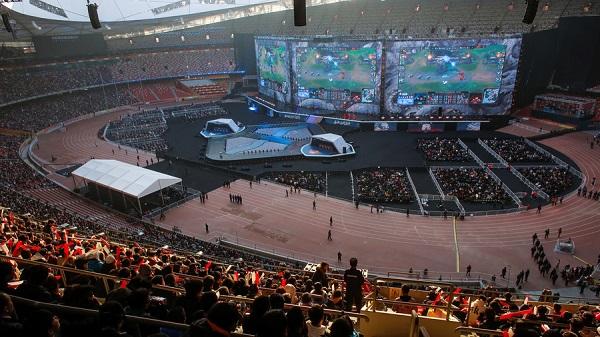In 2010, the Olympics Virtual Series became a pre-performance with players battling against each other in hybrid virtual sports like Zwift, a cycling game taking place on a stationary bike, and Virtual Regatta Inshore, a sailing simulator. This was the series’ debut, which happened to be the first time video games in the Olympics. Can this event grow into something big? Can esports grow into an official Olympic kind of sport? The answers to these questions are endless topics for debate.
Meeting Criteria of the Offical Olympic Sport
Esports can be recognized by the Olympics in the future. However, there are specific criteria that need to be met. Some of them include:
- Accreditation by the responsible authority. Esports must be licensed by a foreign federation operating under the regulation of the International Olympic Committee, or the IOC.
- Professional sportsmen in the segment. Esports must have men widely practising it across the world. This standard has been specified with about men and women participating.
- A potential silver bullet for esports’ Olympic plans. Esports must be categorized as an official kind of sport at different levels. As a physical activity, it requires knowledge, skills, or physical power to handle its competitive nature.
Skills and competitive nature are obvious features of esports. Of course, the physical aspect is a huge question mark here. Based on the research study from the International Journal of Exercise Science, it can be stated that esports players do have raised heart rates like those people playing physical pressure.
Who Needs Whom in the Modern Realities?
Esports is literally getting closer and closer to qualifying as an Olympic sport. However, the question of whether or not esports should be in the Olympics tends to be a long-term discussion. It is actually a two-sided issue. The esports industry is expected to reach several billion dollars in revenue by the end of 2023. This will be a solid increase from last year. And this trend seems to be going up over the next decade. You should keep this in mind when placing our first bet at https://cover.gg/matches/current.
The viewership of esports events should make the official regulators consider adding it to the roster of sports. Otherwise, it doesn’t make sense to spend millions on something that doesn’t have a potentially large fan base. While traditional sports like football has around 170 million viewers across the world, esports should have at least half of that result to be relevant for the Olympics.
Esports Event Conducted on a Large Platform
According to the research data published by Newzoo, 76% of esports viewers prefer to watch esports competitions over watching classic sporting events. Obviously, esports is a great force that overtakes the competition easily. This doesn’t even change with the Olympics.
Competitive video games do a great piece of work to legitimize themselves in the eyes of the public. For instance, Nintendo recently announced their cooperation with PlayVS to make titles like Splatoon 2 and Super Smash Bros: Ultimate more favoured among different regions. Being a major development, it makes the industry gain more traction in the near future.
The relationship between the Olympics and esports is quite an exciting adventure that has lasted for one decade at least. It has a lot to do to adjust itself to the high norms that the Olympics holds. In many respects, esports already do meet these norms and don’t plan to stop at the reached level. To many people, esports competitions have outperformed the Olympics. Why should esports enthusiasts be concerned about what the regulators consider when esports conquers the market and stands above many sports in terms of viewership? This is a rhetorical question that won’t be answered anytime soon.
In order for the Olympics to stay relevant and appealing to the audience, it may have to add esports to its offering. It might be the only option for the Olympics to keep relevance in the digital epoch. The question is when and how it is going to happen. We will most likely observe it over the next 10-20 years.
